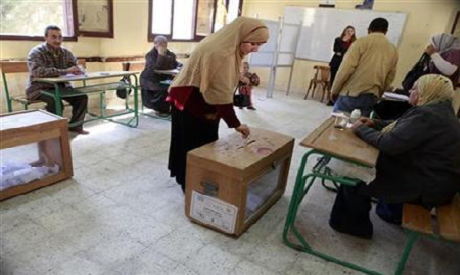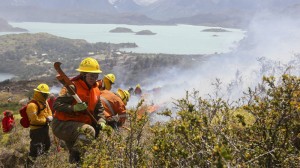29 December 2011 – Today, Hermitage Capital Management published a list of 14 Russian judges who illegally refused Sergei Magnitsky’s mother access to justice throughout 2011 in the murder in Russian state custody of her son. The list will be submitted to the U.S. Helsinki Commission and the Council of Europe’s Consultative Council of European Judges. The list comprises nine judges of the Moscow City Court, three judges of the Tverskoi district court and two judges of the Basmanny district court in Moscow.
Topping the list is Olga Egorova, chair of the Moscow City Court, who, on November 18, 2011 rejected Mrs. Magnitskaya’s complaint seeking an independent medical evaluation into her son’s death. Her denial was based on the assertion that there was no need for an independent medical evaluation because the findings of state bodies could not be questioned.
Another person on the list is Alexei Krivoruchko, judge of the Tverskoi District Court of Moscow who refused on August 30, 2011 to consider a complaint from Mrs. Magnitskaya about the illegality of the posthumous prosecution of her son. As a result, the Interior Ministry proceeded to prosecute a man who had been dead for two years in spite of the fact that
there is no legal precedent in modern times for prosecuting someone after they are dead. Judge Krivoruchko is the same judge who sanctioned this their participation in year’s arrests of opposition figures Alexei Navalny and Sergei Udaltsov who protested against voting fraud in the December 4th Parliamentary elections.
Also on the list is Igor Alisov, recently appointed chair of the Tverskoi District Court of Moscow, who on September 12, 2011 rejected another complaint of Mrs. Magnitskaya protesting the prosecution of her son after his death by the Russian Interior Ministry. In March this year, the same Judge Alisov in an expedited procedure, closed to the public – and ignoring the evidence of Magnitsky’s colleagues and journalists – considered the case about the theft of $230 million from the budget exposed by Sergei Magnitsky prior to his arrest. Judge Alisov found one guilty party in this
crime – a jobless person Vyacheslav Klhebnikov, and recognized as “victims” the tax officials, who approved the multi-million dollar illegal tax refunds in one day and began buying $2 million apartments in Dubai shortly after the illegal tax refunds were granted.
“On fifteen different occasions this year, Sergei Magnitsky’s mother went to Russian courts to uphold her rights and each time she faced a wall of injustice. This story shows that Russian judges are not acting independently and the judicial system in Russia is not working. The plight of Mrs. Magnitskaya is a well-evidenced example that Russian courts are entirely politically directed,” said a Hermitage Capital representative.
During the twelve months of 2011, Moscow courts have refused all fifteen applications from Mrs. Magnitskaya seeking justice for her son. In particular, the judges rejected her application for an independent medical evaluation of causes of her son’s death in Russian police custody and her requests for access to her son’s tissues archive, stating there was no
ground to doubt the findings of state appointed experts. The judges also rejected her complaints against the Russian Investigative Committee for the concealment of her son’s case files, claiming she had no right to inspect those files. Similarly, the judges refused her complaint against the
Russian General Prosecutor’s Office and Interior Ministry for the reopening of the prosecution against her dead son and for the falsification of evidence in the case. Finally, the judges refused to compel investigators to prosecute high-ranking Russian officials for the illegal arrest, torture and murder of her son in state custody.
Judge Mushnikova of the Bamanny District Court in Moscow rejected two applications from Mrs. Magnitskaya this year. On 19 July 2011, Judge Mushnikova rejected an application from Mrs. Magnitskaya seeking access to her son’s tissues archive for an independent medical examination. On 8 December 2011, judge Mushnikova rejected Mrs. Magnitskaya’s complaint
against the Russian Investigative Committee for withholding case files from the relatives and separating the case against two medical personnel of Butyrka detention center.
Another judge of the Basmanny District Court Karpov on December 13, 2011 rejected the lawsuit from Mrs. Magnitskaya seeking to compel the Russian Investigative Committee to open an investigation into the illegal arrest, torture and murder of her son based on evidence she submitted to the Russian authorities this September. In her application, Mrs. Magnitskaya named high-ranking officials of the Interior Ministry, General Prosecutor’s Office, the FSB, the penitentiary system and judges.
On December 9, 2011 Judge Kovalevskaya of the Tverskoi District Court refused the lawsuit filed by Nikolai Gorokhov, the lawyer for Mrs. Magnitskaya, against the Russian Interior Ministry for the falsification of evidence in the case against Sergei Magnitsky by convicted criminals who
Magnitsky had exposed prior to his arrest for acting in collusion with law enforcement officers to misappropriate his client’s companies and $230 million they had paid in taxes to the Russian government.
Finally, Moscow City Court Judge Selina, Abbazov, Gorba, Bondarenko, Martynova, Khatuntseva, Lovchev and Ishmuratova upheld the decisions of judges from Tverskoi and Bassmanny district courts rejecting all complaints of Magnitsky’s mother this year.
For further information please contact:
Hermitage Capital



